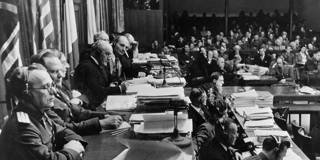OnPoint Subscriber Exclusive
Longer Reads provide in-depth analysis of the ideas and forces shaping politics, economics, international affairs, and more.

The Fog of War Crimes
The seminal tribunals for prosecuting atrocities committed by the Axis powers during World War II were both born in and riven by Cold War politics and the victors' national self-interest. Yet for all of their flaws, both trials showed that the monumental challenge of fairly prosecuting senior officials for high crimes is worth pursuing.
NEW YORK – If there’s one thing that unites virtually everyone with respect to the wars in Ukraine and the Middle East, it is that other people’s views are distorted by “double standards.” The belief that one party is being held to a different measure than others underlies many of the disagreements that have resonated from each conflict to contort global politics.